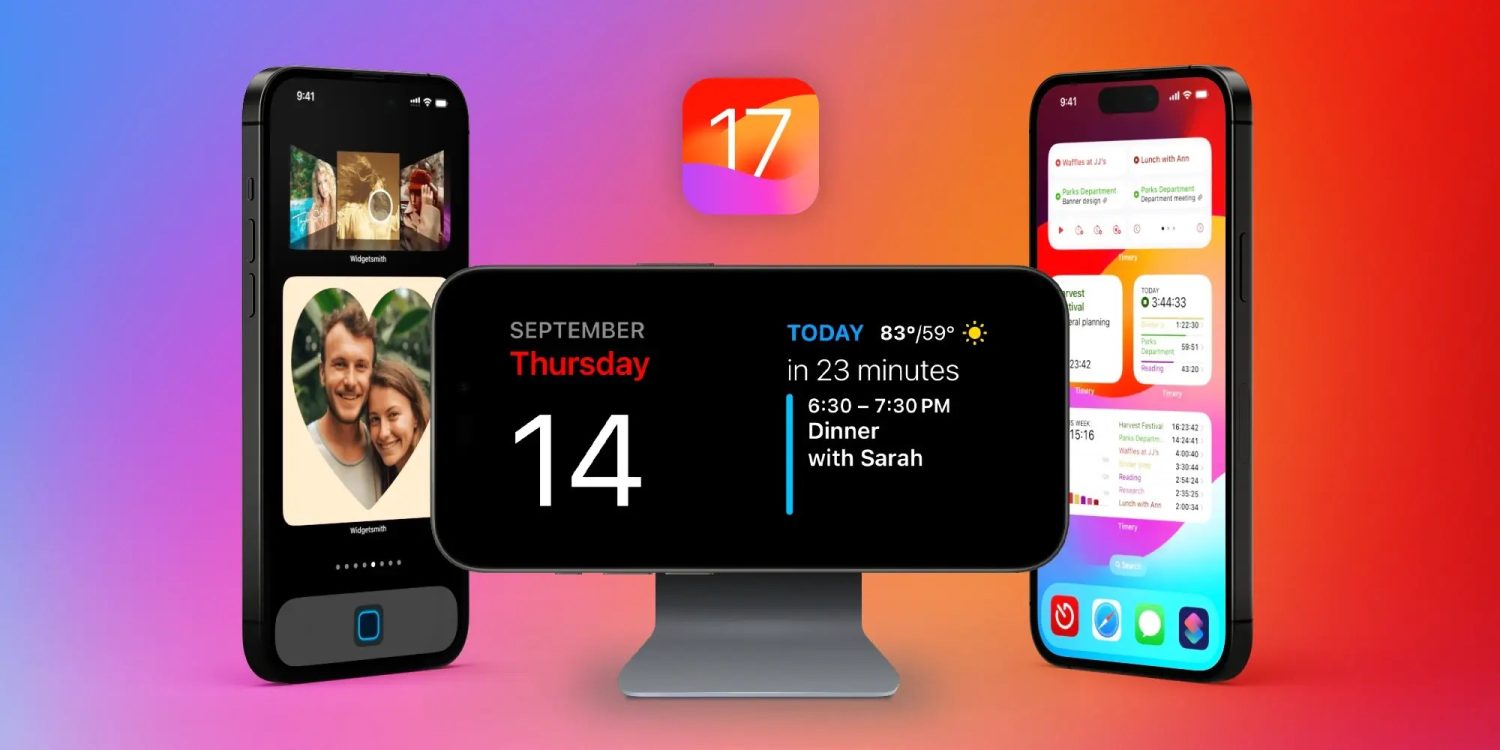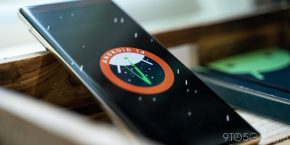
Whenever Apple releases a major OS update, as it did last Monday with iOS 17, iPadOS 17, and watchOS 10, developers – both large but especially indie – release a slew of day one updates to support the latest platform features.
9to5Google has a rebooted newsletter that highlights the biggest Google stories with added commentary and other tidbits. Sign up to get it early in your inbox, or continue reading 9to5Google Log Out below:
Capabilities this year include:
- Interactive widgets on iPhone and iPad
- StandBy widgets on iPhone, which are Smart Display-esque in nature and could easily serve as the basis for Apple’s Nest Hub/Tablet competitor
- Smart Stack widgets on Apple Watch, as well as broader wearable app updates to support the new UI
I understand how the Android update model is inherently different from Apple’s. Namely, updates start out only on Google’s Pixel phones, which have a relatively small market share, while Samsung’s lion’s share of Android phones are typically weeks or months behind. Third-party Android developers don’t have an incentive to update on day one as the majority of their users won’t be getting the new OS for quite some time.
Beyond that, there are not always a ton of new platform features for app developers to adopt. The last major visual change that warranted updates was the media player redesign introduced with Android 13. When that OS launched, core first-party apps like YouTube, YouTube Music, and Chrome were already updated to support the new layout. However, it took nearly four months for Spotify to update their app for Android 13, and other large streaming services took even longer.
Updating when Android 13 first launched for the Pixel would have been the best thing as a good citizen of the platform, but you can’t blame devs for not prioritizing it, given the user base at the time. In comparison, iOS update adoption is immediate to several iPhone generations.
However, the counterargument is that Android users are not exactly at a loss for new features from their apps, especially first-party ones. The various Google apps are updated via the Play Store much more frequently and introduce new features without being tied to an OS release. I’d argue that Android users get more functionality this way than iPhone owners. Then there are the new platform capabilities introduced via Google Play services.
The models are different, with Apple able to make a big splash with an annual major update (like 17.0) and some minor ones (17.1) two or three times a year. I’d say users of Google services will have one of their apps get new features on a near-weekly basis.
I do prefer the constant drip of additions, but can admit how Apple’s yearly big OS release is an enviable moment for apps and new features.
From 9to5Google
Pixel 8 Pro leak reveals ‘Super Actua display’ for ‘direct sunlight’ viewing
Google Pixel 8 and 8 Pro rumored to get 7 years of Android updates
Leaked Pixel Watch 2 ad confirms new health features, a bunch of new bands [Video]
I’ve used Whoop’s new AI coach for 2 weeks, and it’s a game-changer
Hands-on: iPhone 15’s ‘FineWoven’ has Google’s Pixel fabric cases rolling over in their graves
Review: Yale’s Matter-enabled smart lock can’t replace Nest x Yale due to Matter’s limitations
What (else) is happening
Google Podcasts shutting down in 2024 for YouTube Music
Google Messages has been installed 5 billion times
OnePlus unveils OxygenOS 14, built on Android 14, and it’s absolutely full of buzzwords
Samsung reveals Good Lock 6.0 update with these changes ahead of Android 14 debut
Google Earth gets a redesigned Android app with Projects support, removes Voyager
From the rest of 9to5
9to5Mac: Hands-on: In a world of CarPlay uncertainty, Polestar 2’s dual-screen interface shines
Electrek: Toyota teases new compact electric SUV in latest video
FTC: We use income earning auto affiliate links. More.

Comments